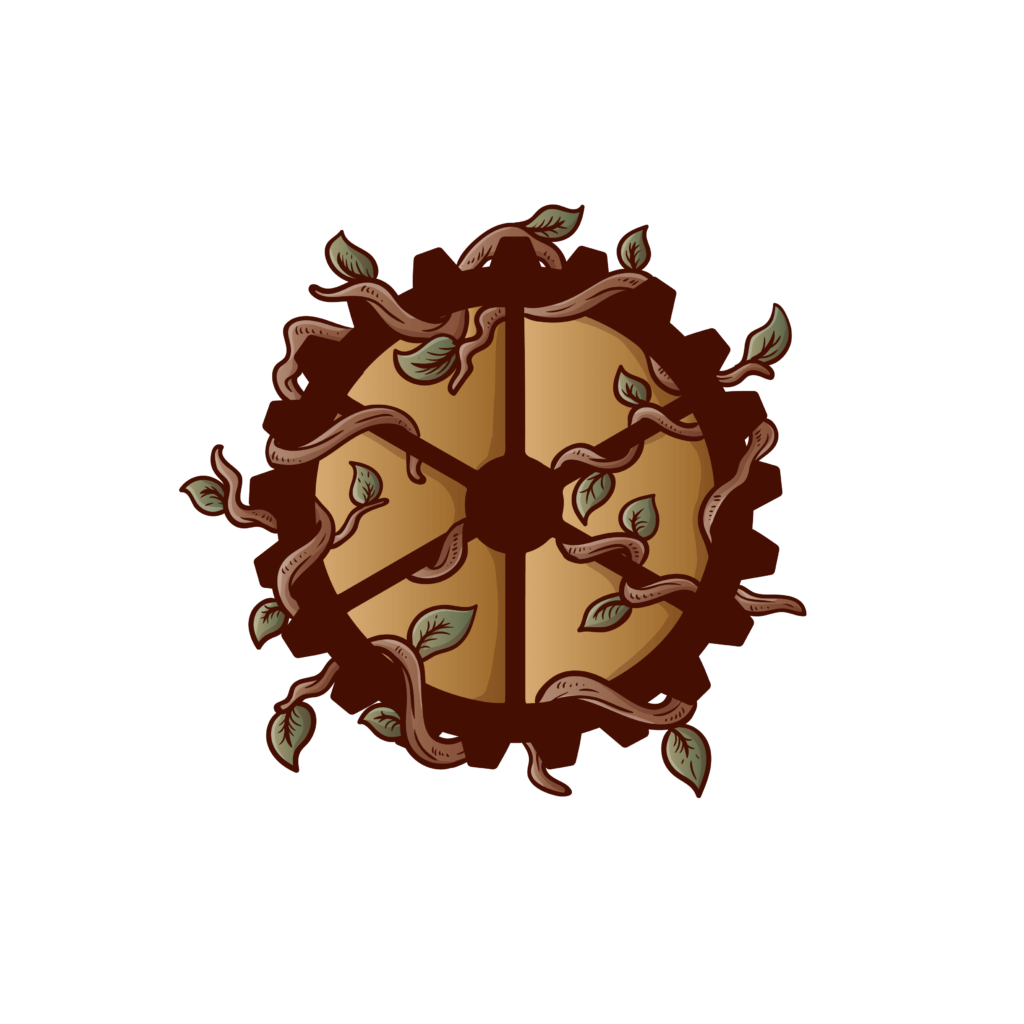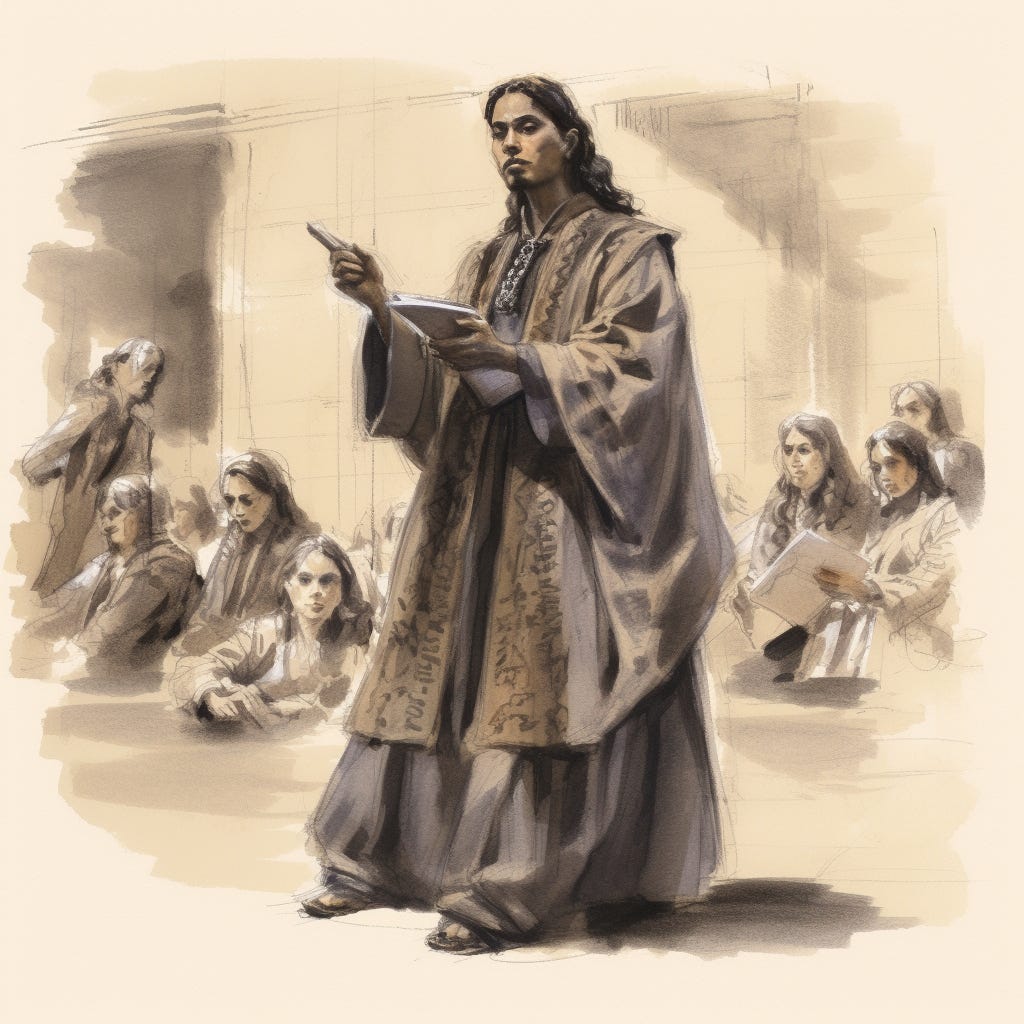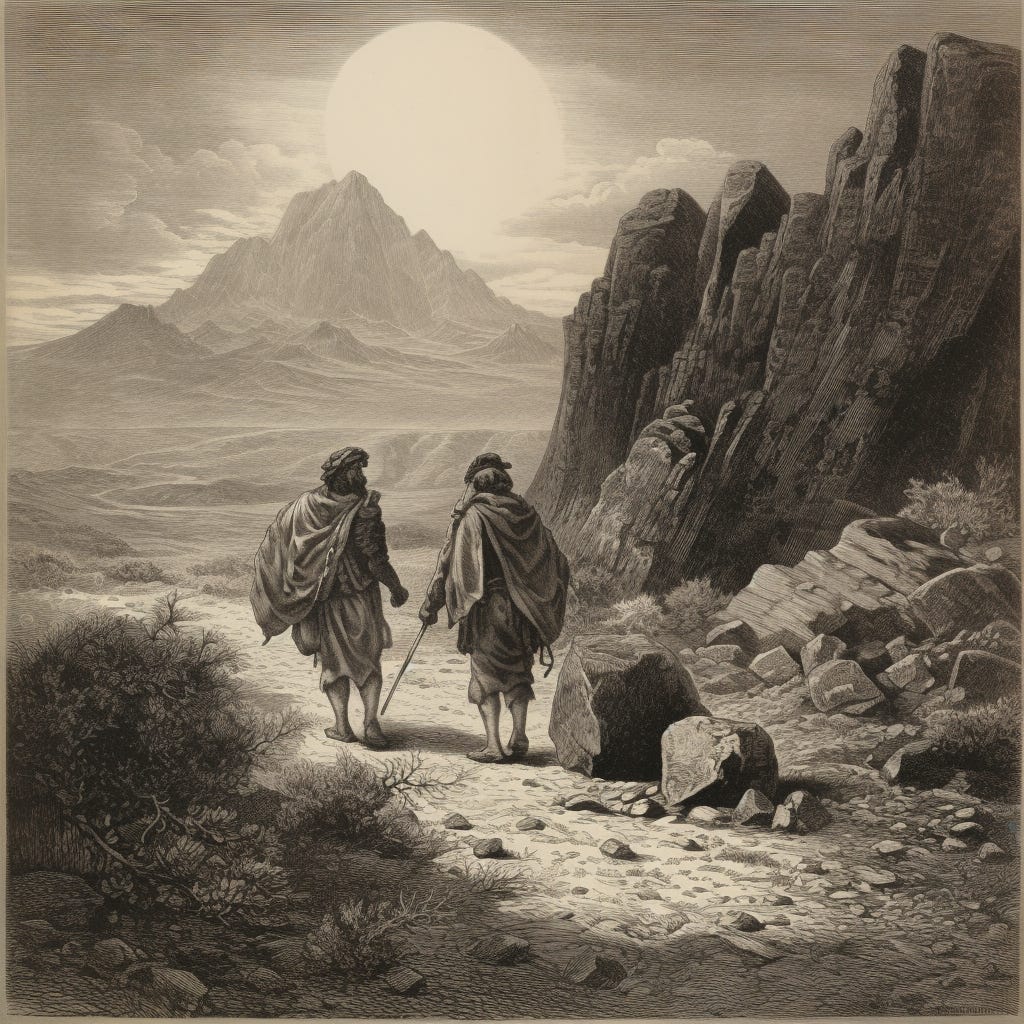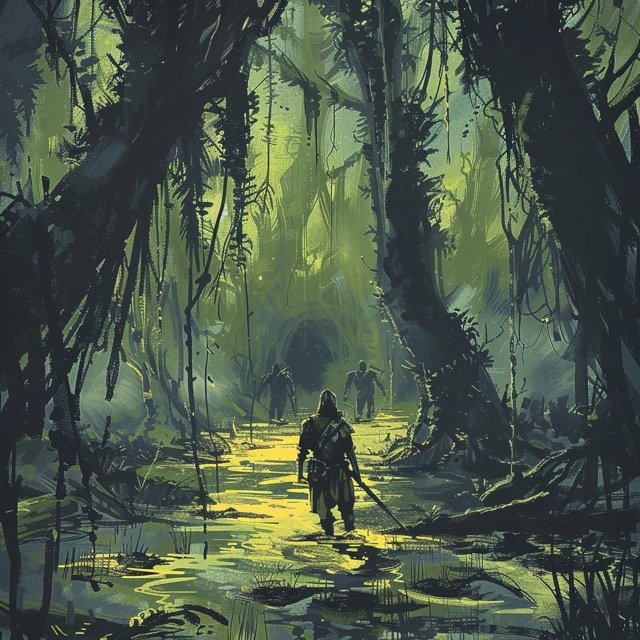The Taorminta Bull: A Bovine Worth a Bounty
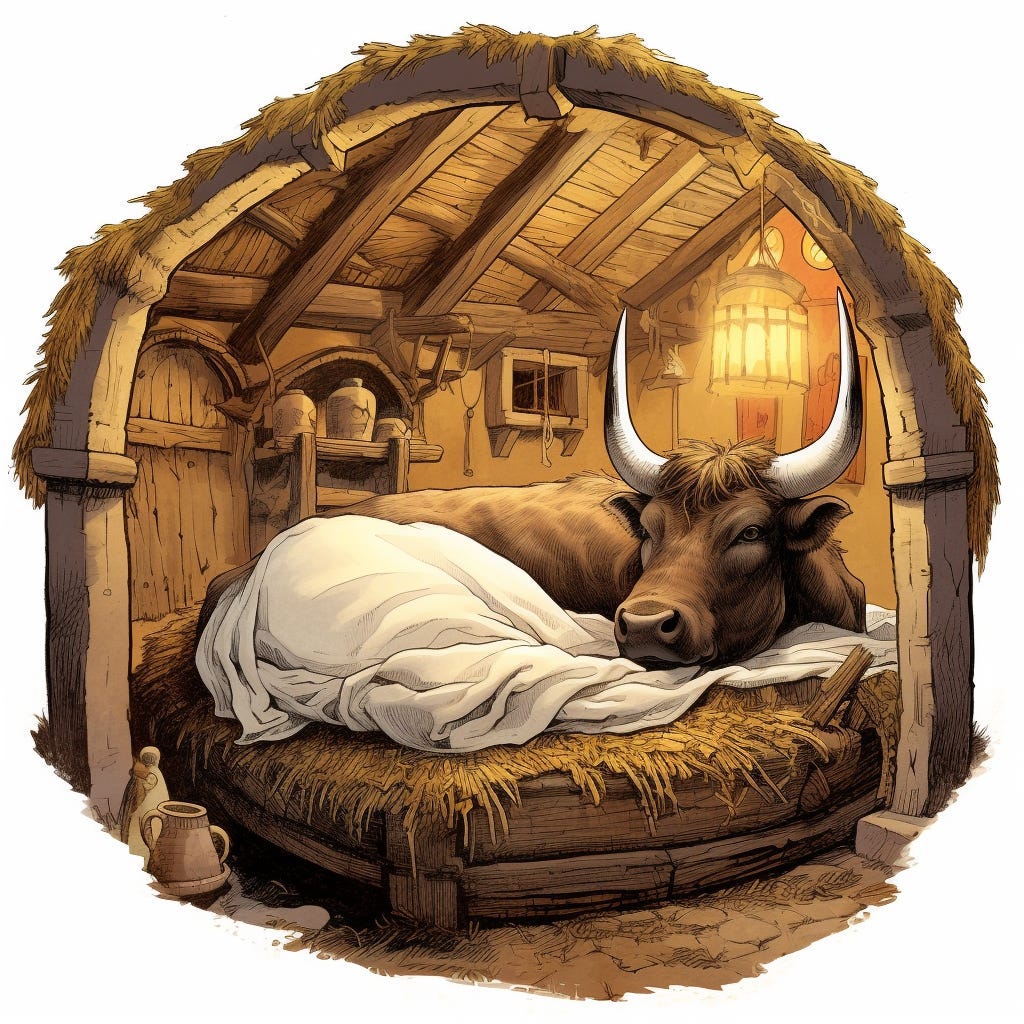
From The Pantheon Fantastical, by Silvana Rhinebeck
Silvana Rhinebeck was a Binder, Professor Emerita at the Magist Imperial University, and Imperial Magus to the Emperor. Her life’s work culminated with The Pantheon Fantastical, a rigorous encyclopedia of the Uncanny Beings of the Meridian. Although it is unfinished due to her sudden disappearance, The Pantheon Fantastical remains the foremost authority on Uncannies and is a key text for all students, scholars, and professionals engaged in the study of the Meridian.
A few years ago, I found myself in a most curious circumstance while on the road to Taorminta, a small village in the hills above the Redstone Tributary. The land thereabouts is rocky and inhospitable to more than subsistence farming, and the villages in the region are generally poor due to this fact and the lack of other profitable industry apart from the manufacturing of baskets, which for whatever reason is a bit of cottage industry there (so to speak).
My plan when I first crossed the tributary had been to pass through Taorminta as shortcut over the hills and down onto the plains on the far side, hastening my journey to Ardskillion where I was due to deliver a lecture at the local institute of magical inquiry. As I made my way by mule up the steep roads to Taorminta, however, I was struck by the grandeur and magnificence of the houses I passed. The Taormintans, unlike their brethren in other villages, were quite wealthy, despite possessing even less acreage under cultivation and making no baskets whatsoever.
The road was also filled with travelers on their way to Taorminta for a festival, which they called the Ploughing of the Bull. Upon arriving in the village, I found it bedecked in goldenrod streamers and papier-mâché bulls. That night, there were fireworks and a great deal of drinking — all paid for by the town council — and I received instructions to join the revelers at the field (the town only keeps one small plot of land under cultivation) for the Ploughing.
The next morning, bleary eyed, I stood by the side of the rocky patch of earth as the Mayor and a local priest gently cajoled an enormous black bull — truly the largest such creature I have ever seen — about the field. He dragged a plough behind him and created languorous furrows, and as he walked, he did what most ruminants do: He pooed. Typically, this would be unremarkable, but the droppings he left were nuggets of pure gold. Indeed, I do not exaggerate when I say that the bull walked and shat gold for the next fourteen hours, until sunset, when he stopped.
That night, there was a great party. The gold was weighed and deposited into the town treasury, with each citizen of Taorminta receiving a portion in accordance with their status and longevity in the community. Even those who had just come for the day’s celebration received a tiny shaving from one of the nuggets. The bull itself, which I gathered was simply called Bull, was fed a meal of milk, oats, and apples. Its stable was a magnificent building on the town square which I had first mistaken for a mansion. The Bull’s keepers — a staff of three — informed me that the Bull lived all year in these quarters and always dined on such fine fare. The festival of the Ploughing of the Bull took place but once a year. Marveling, I left the next morning on my way to deliver my talk, but vowed to return the following year to witness the events one more — and collect a sliver of gold.
When next I returned to Amalcross, I visited the archives at Magist Imperial and searched for any record of the Taorminta Bull. While there was no documentation of the bull itself, a similar tale, this one about a goat in an unnamed community within the Booley Swamps, was recounted by the noted folklorist Filbert Scuffle.
The Booley people still kick up their heels in an annual jig in honor of the Golden Goat. They believe, laughable as it may seem to us, that there was once a goat that left droppings of gold whenever it was fed fine millet mash, and that it only abandoned them when a greedy local tried to feed it inferior grain against its wishes, hence the local aphorism, “don’t trust a fine grain ‘til you try it.”
The Theft of the Bull
I returned a year later to Taorminta expecting another great celebration. Instead, the village was in a state of uproar. The night before the Ploughing celebration was set to commence, the Bull had been tucked into bed as he was every night. One of the attendants, a young woman named Shelly, read him a bedtime story (“The Foul Duckling”), which was reportedly one of his favorites. Once he was sleeping, she enjoyed a cup of warm wine, then lay down to sleep beside him. The next morning, the Bull was gone!
Upon my arrival, the priest and Mayor pressed me into service to solve the mystery. The innkeeper had witnessed three men entering the stable during the night, but had thought nothing of it because the town held the bull in such high regard, and because he knew the night attendant was there. Shelly, temporarily being held under suspicion in the Town Hall, was distraught when I spoke to her. She had fallen into a deep sleep with disturbed dreams. When I inspected her cup, I discovered that she had been dosed with a powerful sleeping drug.
The Mayor by this point was on the verge of a breakdown. Without the Bull, the Taormintans lacked their livelihoods. His theft was a disaster!
The thieves had been sloppy, however. After a careful search, the stable hands and I found a strip of a torn fabric from a tunic. Using a simple spell, I was able to trace the owner of the tunic to a hovel in a nearby village. When I arrived with the local constabulary, we found three rough and rude farmers sitting in the dirt drinking hooch and sobbing. At first they claimed they were upset because their brother had died, yet the jig was up almost immediately because the ingrate emerged from the outhouse, where he had been relieving himself. Moreover, there was ample evidence of a bull having been tied up, including hoof prints and a halter.
When we pressed the farmers as to the current whereabouts of the Bull, they quickly broke down. They’d guarded the bull all night, as best they could, but as they were drinking to their success, the Bull disappeared. Searching the small farm, each believed he saw a stranger — a short man with horns, an enormous swinging phallus, and large testicles — dancing in the woods and farting loudly. The smell had apparently knocked them silly, and they only woke with the sun.
The Mayor attributed this story to the moonshine. He had them thrown in irons and dragged back to Taorminta.
That night, as the city stood in mourning, I wandered by the stable once more. As I stood, looking at its dark interior, a strange little man approached on my left. He farted loudly, entered the stable, rooted around for an apple. As the wave of stench washed over me, I felt dizzy and passed out for a moment. When I awoke, the Bull had returned to his favored spot! Needless to say, the town was overjoyed, and when the festival occurred the next day, I was rewarded with my own nugget, which, I am happy to say, has multiplied many times in value due to some canny investments I made with Mutter & Sons upon my return to Amalcross.
Last I heard, the local godling known as the Bull continued to plough the field once a year in exchange for a life of bovine luxury.
